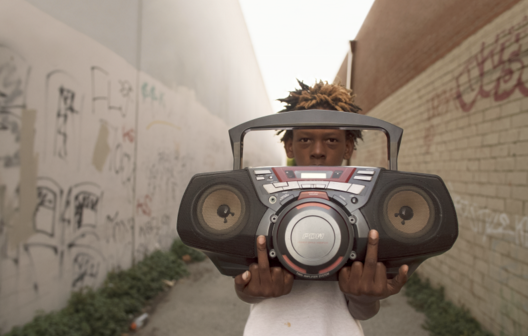VICE’s music website Noisey has posted a lengthy essay on their website arguing that music reviews are no longer a relevant factor for both artists and consumers today.
The essay opens with the example of the effect negative reviews had on Black Sabbath in response to their self-titled debut, an album often credited with the birth of heavy metal.
” …why then did the negative reviews bother Black Sabbath enough for Tommy Iommi (guitarist) to deck a critic in the face and for the words to stick with (Ozzy) Osbourne for 40 years? Simple. In 1970—a time before the internet, MTV, and satellite radio—reviews were a valuable source of information for music fans. Reviews could form opinions. Reviews could sell records.”
The article then notes how times have changed, and the age of music streaming has meant that nearly every piece of music recorded is available to listeners at the touch of a button.
The million dollar question posed throughout the article is, “….with every new album available at our fingertips completely for free at the instant of its release for our own personal judgement, you’ve got to wonder: Do we still need the album review?”
Pam Nashel Leto, a publicist for Girle Magazine and former promoter of The White Stripes, Elliot Smith and Spiritualized, weighs in on the debate, noting that “Album reviews were a critical piece of the puzzle when print media was king…album reviews carried a lot of weight—a positive review in publications like SPIN, Rolling Stone, The Source, Magnet, or The New York Times was enough to make readers curious, enough to make them go and buy the album.”
The article also discusses the rise of music blogs, with Pitchfork used as a case study for the relevance of online music publications.
According to Ian Cohen, current reviewer for Pitchfork, “Acts like Broken Social Scene, Arcade Fire, and Clap Your Hands Say Yeah—all of whom were granted the site’s coveted Best New Music tag between 2004 and 2005—saw their audiences and album sales grow shortly thereafter, a success arguably attributable directly to their Pitchfork review. There was a mutually beneficial relationship between the site and the artists.”
However, the article notes, “The ushering in of a new generation of free-to-low-wage clickjockeys, outrage-generators, and online opinionistas racing against one another to be the first out of the gate with a piping hot take is largely said to have contributed to the death of the professional critic, and reduced collective feedback of art to a pass/fail, ‘classic or trash’ consensus.”
The apparent ‘soft nature’ of reviews is also investigated, with the article noting that the last negative album rating on Pitchfork, or ‘red zone’ with a lower than 40% score for the album, occurred back in 2012 in response to Chris Brown‘s Fortune record, which so happened to coincide with Brown’s criminal conviction, having assaulted former girlfriend Rihanna.
Multiple opinions are raised as to why soft reviews are now a problem, with one particularly striking quote stating, “a share of an article about Five Seconds of Summer on the group’s official Facebook page, which boasts over ten million fans, for example, can drive major traffic to a website. It doesn’t matter how vapid or void of quality the writing of the article is (and whoo boy can it get bad), a share or a re-tweet from the band will send their rabid fans flooding by the thousands to a site, boosting its monthly traffic numbers, which looks appealing to advertisers. So it’s in the site’s best interest to lean positive on their coverage, especially with popular artists.”
“Any dissenting voices on these untouchable artists get shouted down online as either clickbait, trolling, or general assholery.”
The concept of the ‘soft’ review is the core argument against the relevance of the modern-day review, with the subject of online abuse from both artist and fans alike also explored in depth, with the experience of writer Lynn Hirschberg used as an example. “After Lynn… wrote about M.I.A. in The New York Times Magazine back in 2010, M.I.A. famously responded by tweeting Hirschberg’s phone number, prompting fans to call her and leave messages, a move which Hirschberg later called “infuriating and not surprising.”
“…perhaps the reason music reviews have gotten less negative is that critics just plain don’t want to spend a perfectly good afternoon being bullied online by a bunch of egg avatars for pointing out when an artist clunks out a stinker of an album.”
In summation? ” There will always be good music out there, but thanks to this democratization—and dilution—of traditional music criticism, and its creaky old warhorse, the album review, you, the listener, are on your own, left to the mercy of your own opinion.”
Perhaps this is the best thing after all. Don’t trust the opinions of others, who will inevitably have a different taste to you. Trust you’re own instincts. And for the love of god, DON’T READ THE COMMENTS!
Read the full article here.

